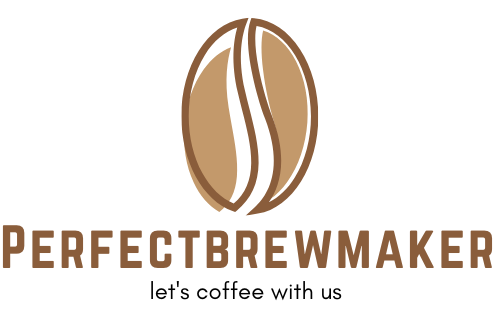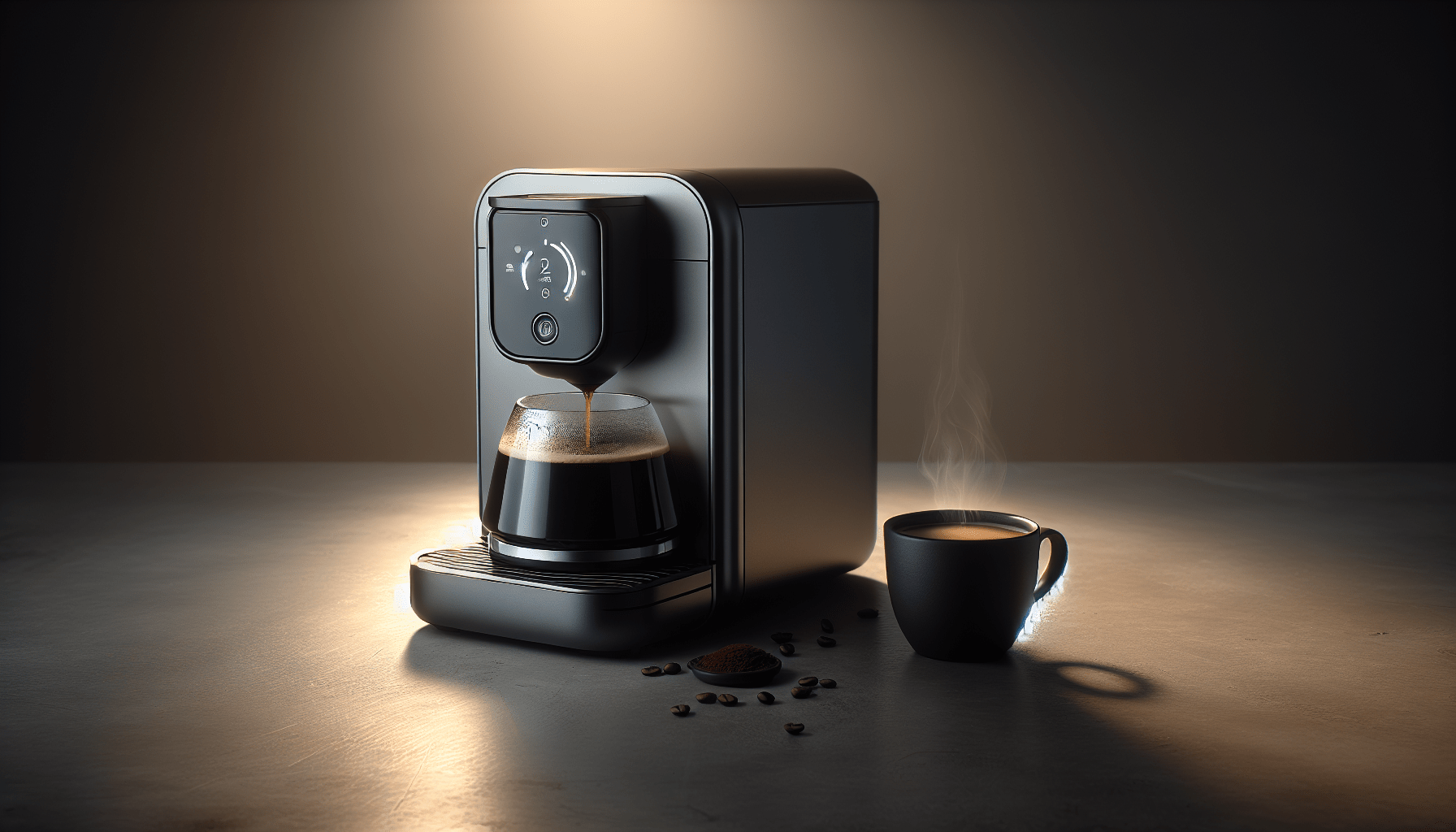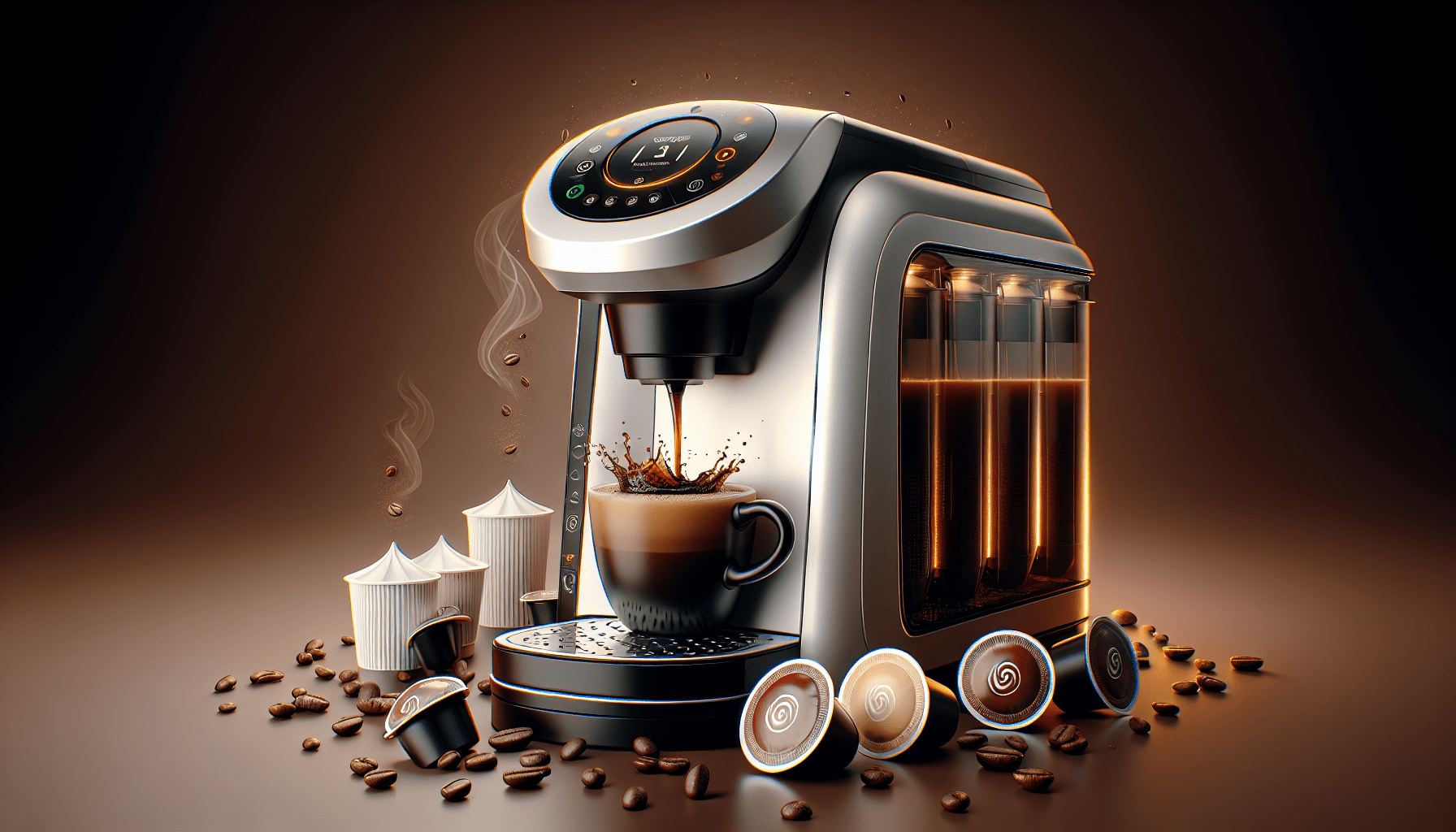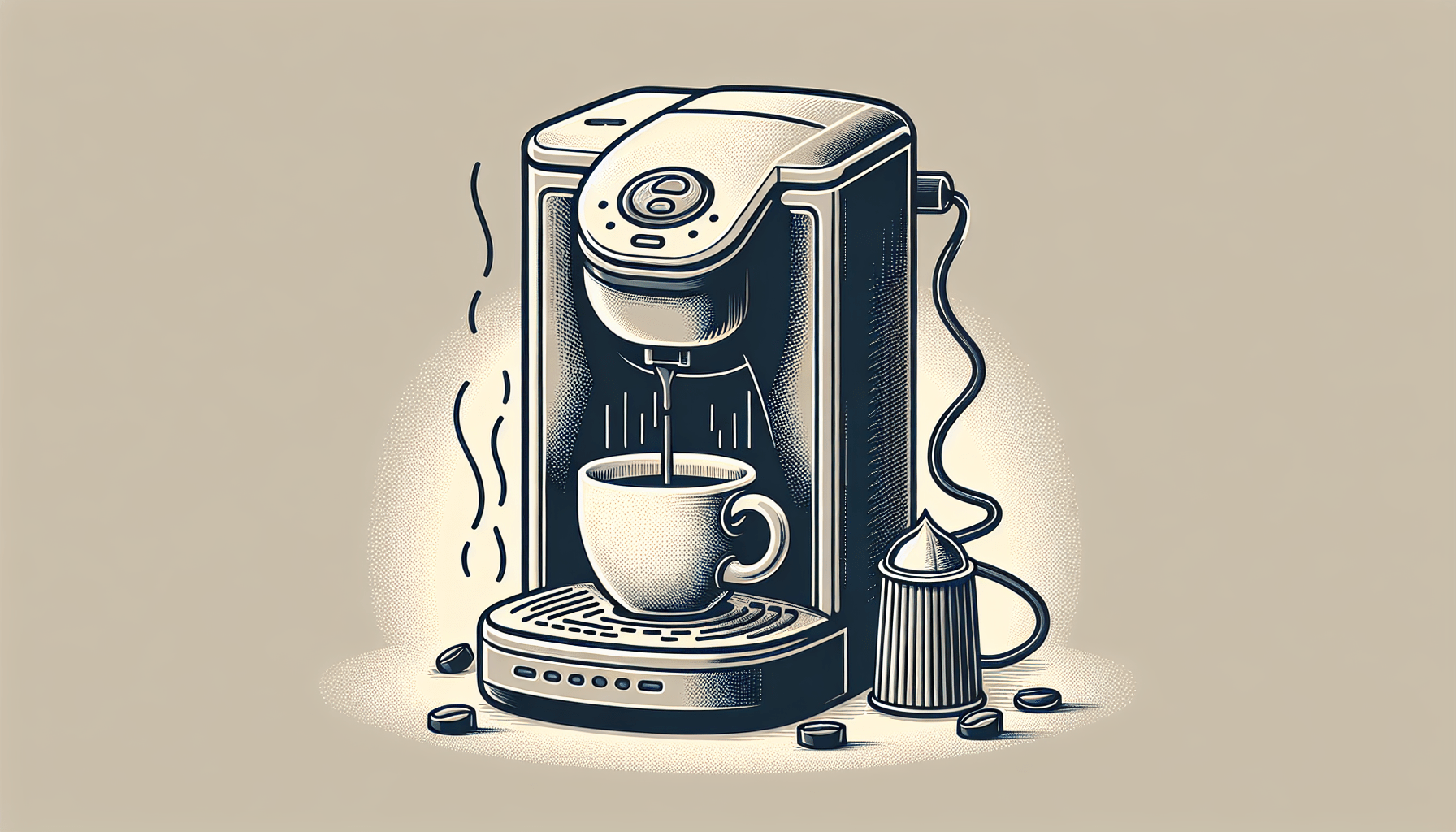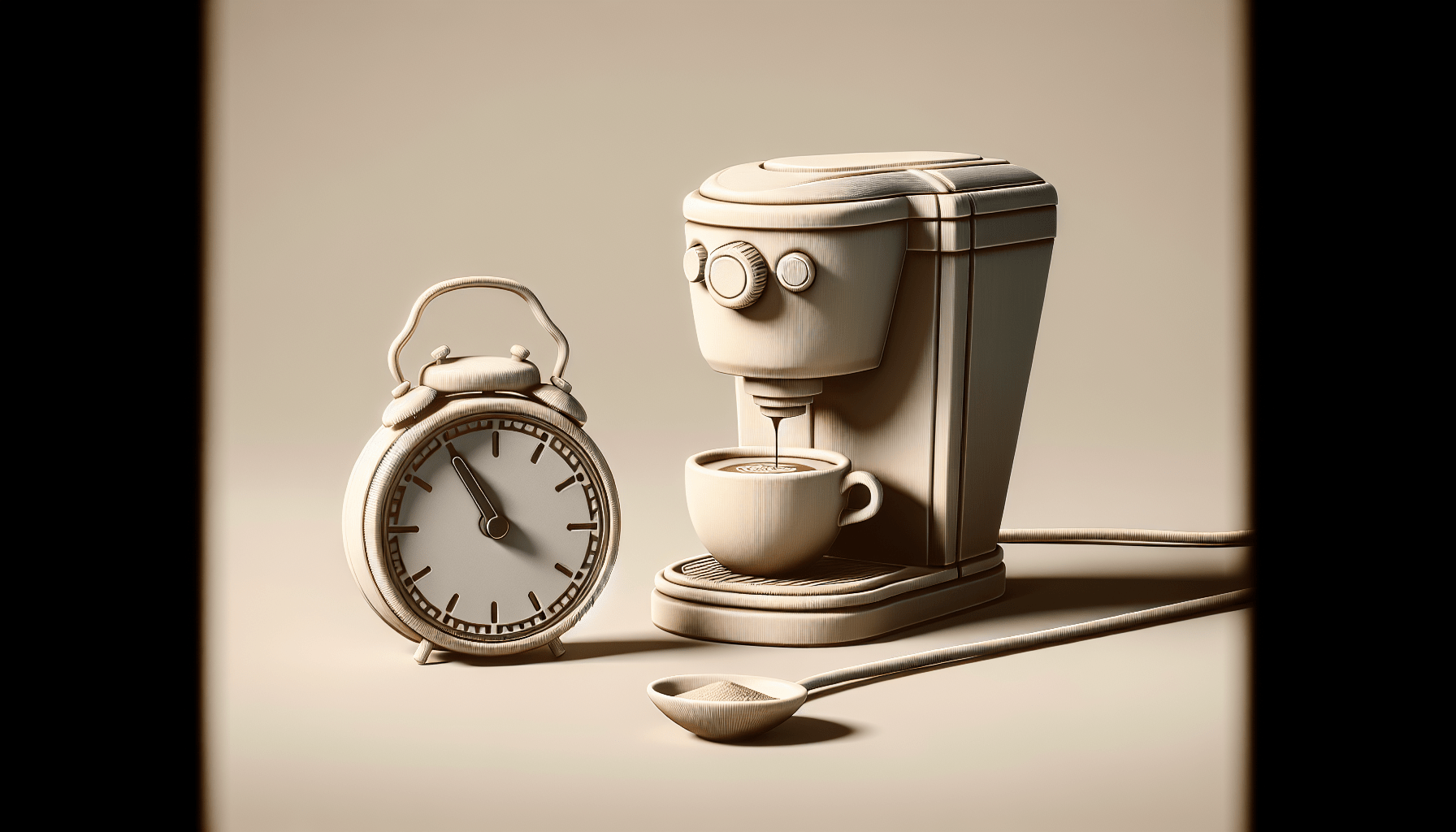If you’re someone who loves a good cup of coffee in the morning but can’t stand the noise of traditional coffee makers, then you’re in for a treat. In this article, we’ll explore the question: Are single-serve coffee makers noisy? Many coffee lovers have been skeptical about these compact machines and their ability to brew a quality cup of joe without disturbing the peace. But fear not, we’ve conducted a thorough investigation to find out the truth about the noise level of single-serve coffee makers. So, grab a cup of your favorite brew and let’s find out if these machines are as quiet as they claim to be.
Noise Level of Single-Serve Coffee Makers
Decibel Ratings of Single-Serve Coffee Makers
When it comes to choosing a single-serve coffee maker, one of the factors that you may consider is the noise level it produces. Decibel ratings are commonly used to measure the loudness of various appliances, including coffee makers. The decibel (dB) scale ranges from 0 dB, which represents no sound, to 120 dB, which is considered extremely loud.
Factors Affecting Noise Level
Several factors can affect the noise level of a single-serve coffee maker. Understanding these factors can help you make an informed decision when choosing a coffee maker that suits your preferences and environment.
Comparisons with Other Coffee Making Methods
To truly appreciate the noise level of single-serve coffee makers, it’s essential to compare them with other coffee-making methods, such as drip coffee makers and espresso machines. By understanding how single-serve coffee makers fare in comparison, you can determine the best option for your needs.
Decibel Ratings of Single-Serve Coffee Makers
Understanding Decibels and Noise Levels
Decibels are used to measure the intensity of sound, and understanding their scale can help us comprehend the noise produced by single-serve coffee makers. Generally, a decibel rating below 60 dB is considered quiet, while anything above 80 dB can be classified as noisy.
Range of Decibel Ratings for Single-Serve Coffee Makers
Single-serve coffee makers typically fall within the range of 60-80 decibels. The specific decibel rating can vary depending on the brand and model of the coffee maker. Some models may have noise reduction features, resulting in lower decibel ratings. The noise level can also be influenced by factors such as brewing process and cup dispensing mechanism.
Comparison with Common Sounds
To put the noise level of single-serve coffee makers into perspective, let’s compare their decibel ratings with common sounds we encounter daily. A normal conversation usually falls within the range of 60-70 dB, while a vacuum cleaner can reach approximately 70-80 dB. Some single-serve coffee makers may produce noise levels similar to these everyday sounds.
Factors Affecting Noise Level
Type of Single-Serve Coffee Maker
The type of single-serve coffee maker you choose can significantly impact the noise level it produces. Different brands and models may employ varying mechanisms, resulting in differing noise levels. It is beneficial to research and read reviews to determine which brands are known for quieter operation.
Brewing Process
The brewing process itself can contribute to the noise level of a single-serve coffee maker. Two key stages that may generate sound are water heating and coffee extraction. The methods used to heat the water and extract the coffee grounds can vary between models, leading to differences in noise production.
Quality and Age of Machine
The quality and age of the coffee maker can also influence its noise level. Over time, internal components may wear out or become less effective, leading to increased noise during operation. Regular maintenance and cleaning can help prolong the lifespan of the machine and potentially reduce noise levels.
Cup Dispensing Mechanism
The mechanism used to dispense the coffee into your cup can also contribute to noise production. Some machines may have cup loading and ejection processes that generate additional sound. Be sure to consider the design and efficiency of the cup dispensing mechanism when evaluating noise levels.
Type of Single-Serve Coffee Maker
Differences in Noise Levels between Brands
While all single-serve coffee makers fall within a certain decibel range, there can be noticeable differences in noise levels between different brands. Some brands invest in noise reduction technologies or innovative designs to minimize the noise produced during operation. Reading customer reviews and researching specific models can give you insights into the noise levels of different brands.
Impact of Machine Size and Design
The size and design of the single-serve coffee maker can also affect its noise level. Compact machines, though convenient for limited counter space, may produce more noise due to compacted internal components. On the other hand, larger machines may have more space to reduce noise through insulation and vibration dampening mechanisms.
Brewing Process
Noise During Water Heating
The water heating stage is an integral part of the coffee-making process and can result in noise generation. Coffee makers with faster heating mechanisms or those with insulated water tanks may produce less noise during this stage. Understanding the specific heating method employed by different models can help you choose a coffee maker with a noise level that suits your preferences.
Mechanical Noises during Coffee Extraction
As the coffee extraction takes place, mechanical noises may be generated by certain parts of the coffee maker. These mechanical noises can vary between models, depending on the type of extraction system used. Some models may utilize quieter mechanisms or additional sound-absorbing materials to minimize noise during this crucial stage.
Noise from Pumping Mechanism
The pumping mechanism of a single-serve coffee maker, responsible for delivering water to the coffee grounds, can contribute to noise production. While necessary for brewing a flavorful cup of coffee, the pump’s noise level can differ between models. Some brands may have developed quieter pumps or employed noise reduction techniques to minimize disturbance during the brewing process.
Quality and Age of Machine
Effect of Machine Condition on Noise
The condition of the single-serve coffee maker can play a role in its noise level. Well-maintained machines are likely to operate more quietly than those that have been neglected or poorly cared for. Regular cleaning, descaling, and servicing can help maintain the machine’s performance and reduce noise over time.
Maintenance and Noise Reduction
To reduce noise from your single-serve coffee maker, implementing regular maintenance practices is essential. Clean the machine regularly, removing any debris or residue that may interfere with its operations. Descaling the coffee maker periodically can also help keep the internal components functioning optimally, potentially reducing noise.
Cup Dispensing Mechanism
Noise from Cup Loading and Ejection
While not all single-serve coffee makers have cup loading and ejection mechanisms, those that do may produce additional noise during these processes. When evaluating the noise level of a coffee maker, consider the efficiency and noise produced during cup loading and ejection. Some models may incorporate design features to minimize the noise associated with these actions.
Alternative Dispensing Methods
If noise is a significant concern for you, it may be worth considering single-serve coffee makers with alternative dispensing methods. Some brands offer models that dispense coffee directly into a travel mug, bypassing the need for separate cup loading and ejection processes. This can minimize the noise generated during these steps and offer a quieter brewing experience.
Comparisons with Other Coffee Making Methods
Comparison with Drip Coffee Makers
Drip coffee makers, also known as filter coffee makers, are a popular alternative to single-serve coffee makers. In terms of noise level, drip coffee makers generally operate at a lower volume compared to single-serve coffee makers. The brewing process of drip coffee makers tends to be quieter, with a subtle hissing sound during water dispersion. However, it is essential to note that noise levels can still vary between different models and brands of drip coffee makers.
Comparison with Espresso Machines
Espresso machines are another coffee-making option to consider when evaluating noise levels. These machines typically produce louder noise compared to both single-serve and drip coffee makers. The high-pressure extraction process employed by espresso machines often results in distinctive noises, including the sound of water pumping and steam release. If noise is a significant concern for you, it may be worth exploring quieter espresso machine models or looking into soundproofing options for the machine.
In conclusion, single-serve coffee makers can vary in terms of noise level, with decibel ratings falling within the range of 60-80 dB. Factors such as the type of coffee maker, brewing process, machine quality and age, and the cup dispensing mechanism can all contribute to the overall noise level. When comparing single-serve coffee makers with other coffee-making methods, it is important to consider the specific decibel ratings, as well as the environmental impact of the noise produced. By understanding these factors and considering your preferences, you can select a single-serve coffee maker that provides a pleasant and quiet brewing experience.
